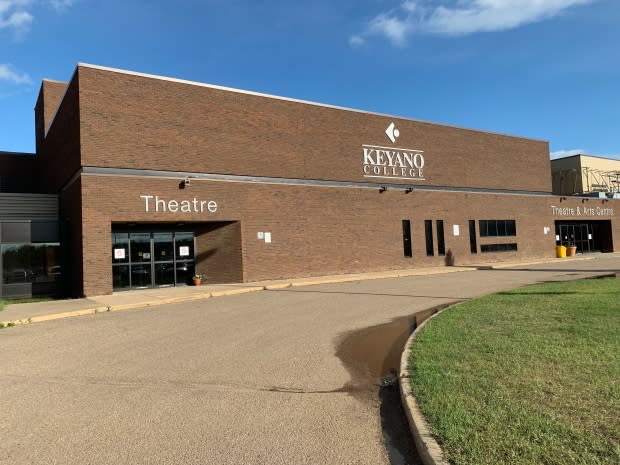Fort McMurray college first in Alberta to adopt Chicago Principles on free speech
Fort McMurray's Keyano College is the first post-secondary institution in the province to adopt the Chicago Principles of free speech.
Keyano adopted the principles in a unanimous vote on July 11.
Keyano's website has a list of the principles, including that free speech can't violate Canadian law, that people have the right to criticize or question the views of others and that colleges shouldn't try to shield students from ideas or opinions.
The Alberta government wants all 26 publicly funded colleges and universities in the province to adopt the Chicago Principles or develop a set of of their own to encourage freedom of speech by Dec. 15, 2019.
In an interview with CBC, Advanced Education Minister Demetrius Nicholaides said he hasn't received much pushback from universities and colleges.
"I would say [there's] just a little bit of concern to make sure, of course, that these principles are compliant with Canadian law, which is completely understandable."
He said there are "very strong and robust" legal mechanisms in place, including the Alberta Human Rights Act and the Criminal Code of Canada, that provide clarity on what types of speech are acceptable.
"In Canada, freedom of speech is not an absolute," he said.
People have been silencing themselves and self-censoring. - Sharon Polsky, President of the Privacy and Access Council of Canada
Several colleges and universities have talked about drafting their own policies, Nicholaides said.
Laurie Chandler, spokesperson for the department of advanced education, said there are numerous examples of students not being allowed to criticize professors or their institutions. She said adopting the Chicago Principles is a move to combat the silencing of some opinions.

The adoption of the Chicago Principles "is a very welcome occurrence," said Sharon Polsky, president of the Privacy and Access Council of Canada.
Society is at a point, she said, where in some cases vigorous debate has been replaced by moves to silence people with unpopular opinions.
"That's completely contrary to democratic and constitutional freedoms," she said.
"People are now afraid of retribution. People have been silencing themselves and self-censoring, and that means the people who are the loudest are the ones whose voices are heard."
She said universities should be places for people to explore new ideas.
"It's not a place to go to have your own biases just confirmed."
Polsky said she'd like to see the rest of Alberta's colleges and universities adopt the principles, along with institutions outside Alberta.
And she'd like to see something similar adopted in the corporate environment.
Many of the problems arise on social media, she said.
"We've seen it happen where someone says something or a comment is attributed to them and they lose their job because that comment is seen to be out of step with the corporate values," she said. "What happened to, we're entitled to our opinions?"
Keyano College did not provide CBC with an interview.
"By protecting free speech, Keyano is responding to changing demographics and social mores," president Trent Keough said in an emailed statement.

